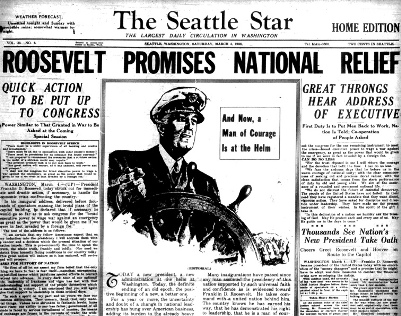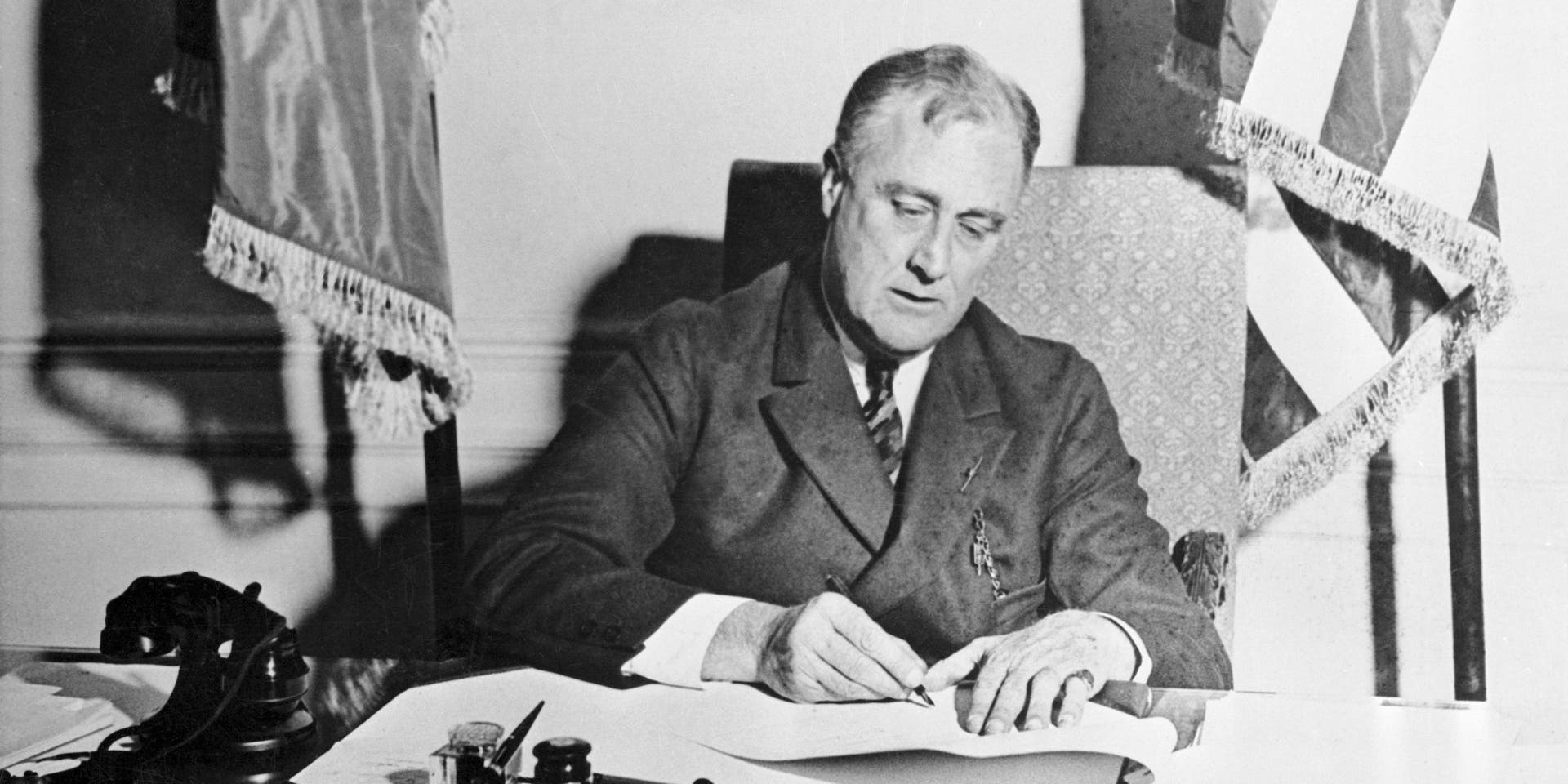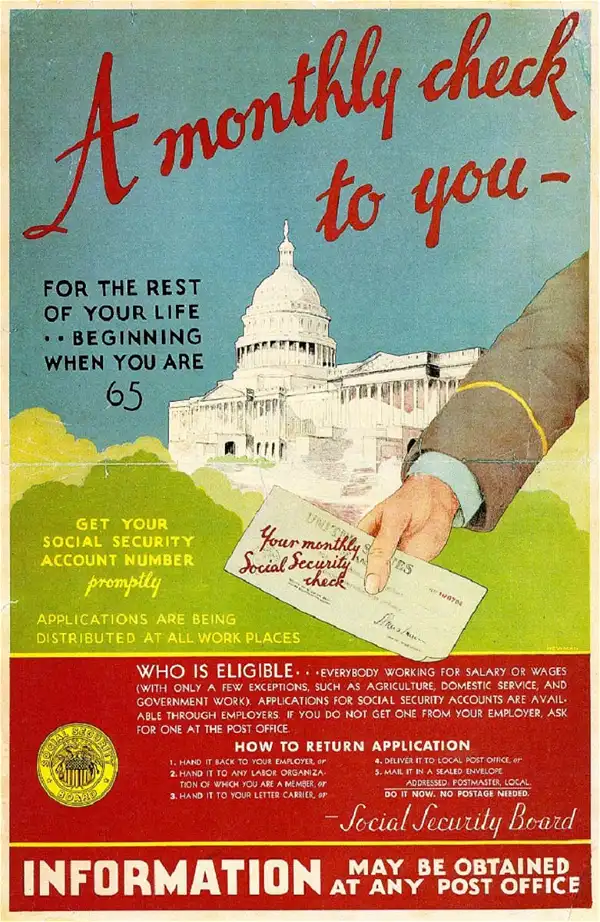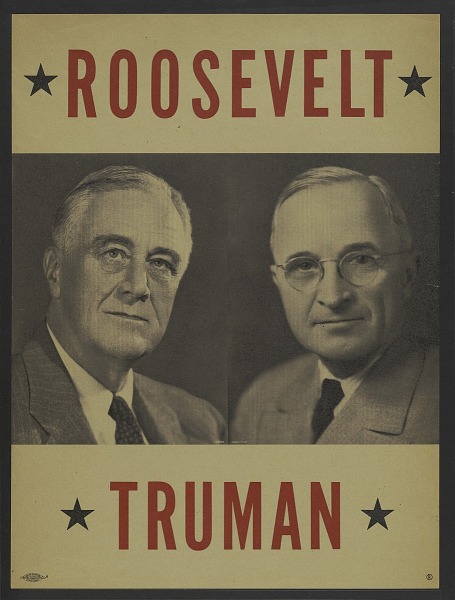
"Roosevelt Promises National Relief." The Seattle Star, March 4, 1933 .

As the crash worsened, calls grew for increased federal intervention and spending. Herbert Hoover, the president at that time, refused to involve the federal government in forcing fixed prices or controlling businesses, all of which he felt were steps towards socialism.[1] When his term ended, he was soundly defeated by Franklin Roosevelt in 1932.
Roosevelt promised Americans a “New Deal” when he became president, and during his first year as president, he signed several new laws that changed the way the financial system functioned. According to the Gilderman Institute of American History, "New Deal bills supported direct federal aid and tightened government control over many industries all in the hopes of jumpstarting both consumer confidence and the economy."[2] The New Deal included many acts that changed the financial system for the better, such as the Glass-Steagall Act of 1933 and the Securities Act of 1933 and 1934.

"Roosevelt Promises National Relief." The Seattle Star, March 4, 1933 .
To slow the incoming depression, President Roosevelt signed into law on June 16, 1933, the Glass-Steagall Act.[3] This act forced commercial banks to refrain from investment banking activities to protect depositors from potential losses through stock speculation.[4] The Glass-Steagall Act aimed to prevent a repeat of the Great Crash of 1929 and bank failures.
The market was often abused during the 1920s (fraudulent activities and suspicious dealings were commonplace), so Congress passed two significant reforms: the Securities Act and the Securities Exchange Act. These acts provided increased structure and improved oversight of the securities market.[5] Many other similar acts were also founded over this period.
If these acts had been founded earlier, then perhaps the Great Crash of 1929 could have been prevented. Even if Roosevelt’s New Deal had not been created early enough to have stopped the Great Crash of 1929 and the subsequent Great Depression, they ameliorated future recessions and prevented future depressions.

Social Security. "A Montly Check To You." Social Security, November 36-37, 1937

Allied Printing Trades Council "A poster with images of Franklin Roosevelt and Harry Truman the Democratic nominees for President and Vice President in 1944." 1944
The Great Crash of 1929 and the Great Depression devastated the U.S. economy. Due to the speculation and optimism that preceded it, the stock market crash wiped out billions of dollars and uprooted the lives of millions of Americans. The crash also had a lasting impact on people's confidence in the stock market, and it changed the way people thought about investing.
The resulting sharp reductions in spending and investment shattered the economy but ultimately resulted in New Deal legislation, which helped improve the lives of people suffering from the effects of the Great Depression. These events left an indelible mark on the American economy and the psychology of American consumers, changing the way our financial system functions today.
Header Image: GETTY IMAGES, Roosevelt Signing the Emergancy Banking Act, March 9, 1933
[1] The Gilder Lehrman Institute of American History, Herbert Hoover on the Great Depression and New Deal, 2023
[2] The Gilder Lehrman Institute of American History, Herbert Hoover on the Great Depression and New Deal, 2023
[3] Franklin Roosevelt Signs the Glass-Steagall Banking Reform Act, Age Fotostock, June 16, 1933
[4] Investopedia, Glass-Steagall Act of 1933: Definition, Effects, and Repeal, 2023
[5] Free Speech Center, Securities and Exchange Commission, December 1, 2023